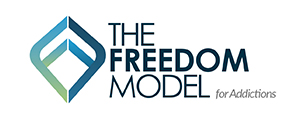Baldwin Research:
Addiction & Treatment
Research
The Myth of Codependency
Moving on then, the next mythical condition is codependency. Codependency is another one of the conditions created (circa 1982) by Alcoholics Anonymous and the many quasi-professionals that populate the drug and alcohol treatment industry. Codependency is a condition that claims that having a close association (relationship) with an "alcoholic" or "addict," the non-alcoholic or non-addict in the relationship becomes just as "sick" as the "addict" or "alcoholic. "
The premise that a drinker or someone who uses drugs is "sick" or that anyone in a relationship with a user is also "sick" is a misrepresentation of those individuals and relationships that are labeled as such. Relationships that are fraught with unhappiness, dissatisfaction and verbal abuse are not sick.
According to the Merriam Webster Dictionary, codependency is "a psychological condition or a relationship in which a person is controlled or manipulated by another who is affected with a pathological condition (as an addiction to alcohol or heroin). " Even though BRI researchers agree that the word "codependency" is used to express Merriam-Webster’s definition, BRI research disagrees with the premise that there exist unique pathological symptoms with which to diagnose codependency. Furthermore, BRI researchers do not and cannot agree that being controlled or manipulated within a relationship is specific to any class. In fact, BRI researchers have observed control and manipulation in virtually all relationships, including, relationships among children at play, relationships among adolescents, early adulthood, covivant arrangements, marital partners and among coworkers. So, a relationship, any relationship, "in which a person is controlled or manipulated by another" appears to be as normal as having relationships. Furthermore and in previous discussions in this paper, BRI researchers already dispelled the myths about alcoholism and addiction being pathological. Finally, and after observing family dynamics for more than two decades, where drugs and alcohol use were involved, BRI researchers know that the definition for codependency does not in any way exclusively apply to relationships involving drug and alcohol users. "Co" simply means "with" or "together" and "dependency" means "reliance on" or "need for. " Think about it; two people that rely on one another and need each other are most probably in a happy relationship, at least for them.
And that is the point here — to label in generalities is to miss the infinite reasons people stay together and the reasons they separate. The operative word here is "reasons. " Each party in a relationship stays for a variety of personal reasons; none of which can be perfectly known by someone observing from the outside. All individual’s are imbued with autonomy — the privacy of their own thoughts, desires, goals and reasons for staying in a relationship that may include some pretty steep emotional pain (or not).
To label people as codependent misses the point and is simply not helpful. It is an inaccurate label because people stay in some rough and tumble relationships for many reasons, and we can assume that they stay in them because the relationship has some value to each party. If there is no value, the relationship dissolves. Still, codependency mislabels relationships that are typically outside the range of what someone observing the relationship considers socially acceptable. But again, the existence of relationships that are filled with pain, dissatisfaction and chaos does not mean they fall into a class of sickness or pathology, it just means people have reasons to stay together that outweigh other alternatives, and, until something better comes along, they see no reason to change.


